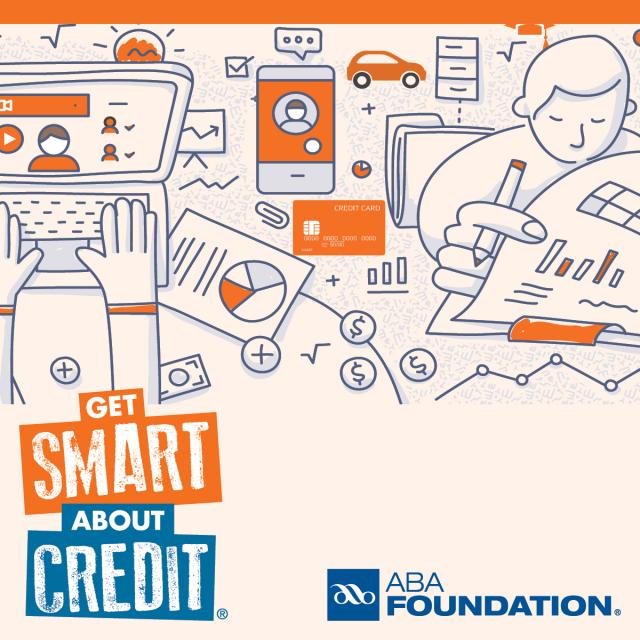Virginia Bankers Help Students ‘Get Smart About Credit’ with Virtual Financial Education Lessons
Virginia bankers are teaming up with the American Bankers Association Foundation’s Get Smart About Credit program on October 15th as part of an ongoing effort to teach Virginia teens how to manage their money.
Now in its 18th year, Get Smart About Credit is a national campaign of volunteer bankers who visit classrooms and community organizations across the country to help teach young people about credit and other important financial lessons. However, this year, due to the ongoing pandemic, banks have adapted their lesson plans to accommodate a virtual learning environment.
Virginia bankers will utilize the program’s awareness day – Get Smart About Credit Day – as an opportunity to meet virtually with students from across the Commonwealth. Bankers will present virtual lessons on financial obstacles facing teens, including saving for the unexpected, paying for college, building good credit habits, managing their money, and protecting their identity. Information will also be provided on the benefits of a career in banking.
“This year’s lessons may look a little different with our new virtual environment, but their content has never been more important,” said Virginia Bankers Association (VBA) President & CEO Bruce Whitehurst. “Get Smart About Credit gives us an opportunity to equip the young adults in our community with the financial knowledge they need to prepare for the unexpected and ultimately be successful.”
Virginia bankers offer these seven tips to help students shape their financial future:
- You are in charge. It’s your job to manage your money. Set yourself up for success by creating a realistic budget and sticking to it.
- Watch your spending. It all comes back to the simple lesson of needs vs. wants. Pace spending and increase saving by cutting unnecessary expenses like getting take out or online shopping so that your money can last throughout the school year.
- Use credit wisely. Understand the responsibilities and benefits of credit. How you handle your credit in college could affect you well after graduation. Shop around for a card that best suits your needs. Pay as much as you can, as soon as you can, and always pay by the due date.
- Utilize your bank services. Banks are more than money in a vault. They offer valuable services that students can benefit from including check cashing, debit cards, mobile and online banking, balance alerts, personal loans, direct deposit, financial education and identity theft protection.
- Be cautious when it comes to money. Don’t just trust anyone with your money. Be skeptical of classmates, friends or salespeople that have ideas for your money.
- Save, save, save! Things happen, and it’s important that you are financially prepared when your car or computer breaks down or any one of life’s unexpected emergencies. No matter how small the amount, you should start putting some money away immediately.
- Ask. This is a learning experience, so if you need help, ask. Your parents or your banker are a good place to start and remember the sooner the better.
2020 Get Smart About Credit Participating Banks:
- American National Bank & Trust
- Bank of Fincastle
- Benchmark Community Bank
- Blue Grass Valley Bank
- Burke & Herbert Bank
- Chain Bridge Bank
- Essex Bank
- Farmers Bank
- Fulton Bank
- National Bank of Blacksburg
- New Peoples Bank
- Oak View National Bank
- Shore Bancshares, Inc.
- TD Bank
- The Bank of Southside Virginia
- The Fauquier Bank
- Truist Bank
- United Bank
- Wells Fargo
For more information about the VBA’s financial literacy efforts, click here.
###
About the Virginia Bankers Association
The Virginia Bankers Association represents banks of all sizes and charters and has served as the unified voice for Virginia’s $615 billion banking industry and its 42 thousand employees since 1893. To learn more about the VBA, click here.

